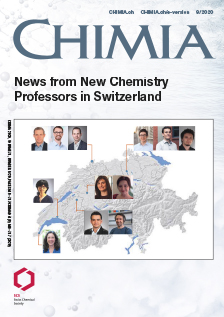Towards a Paradigm Shift in Polar Organometallic Chemistry
DOI:
https://doi.org/10.2533/chimia.2020.681PMID:
32958104Keywords:
Catalysis, Chemical cooperativity, Green chemistry, Organometallic, SustainabilityAbstract
Core tools of synthetic chemistry, polar organometallic reagents (typified by organolithium and Grignard reagents) are used worldwide for constructing compounds, especially aromatic compounds, which are ubiquitous in organic chemistry and thus in numerous commodities essential to everyday life. By isolation and characterisation of key organometallic intermediates, research in our group has led to the design of polar mixed-metal reagents imbued with synergistic effects that display chemical properties and reactivity profiles far exceeding the limits of traditional single-metal reagents. These studies have improved existing, or established new fundamentally important, synthetic methodologies based on either stoichiometric or catalytic reactions. Bimetallic cooperative effects have been demonstrated in an impressive array of important bond forming reactions including deprotonative metallation, transition metal-free C–C bond formation and metal–halogen exchange to name just a few. Towards greener, more sustainable, safer chemical transformations, our group has also pioneered the use of polar organometallic reagents under air and/or with water present using biorenewable solvents such as Deep Eutectic Solvents (DES) and 2-methyl THF. Herein we summarize some of our recent efforts in this intriguing area, which we believe can make inroads towards a step change in the practice and future scope of polar organometallic chemistry.Downloads
Published
2020-09-30
Issue
Section
Scientific Articles
License
Copyright (c) 2020 Eva Hevia

This work is licensed under a Creative Commons Attribution-NonCommercial 4.0 International License.
How to Cite
[1]
Chimia 2020, 74, 681, DOI: 10.2533/chimia.2020.681.







